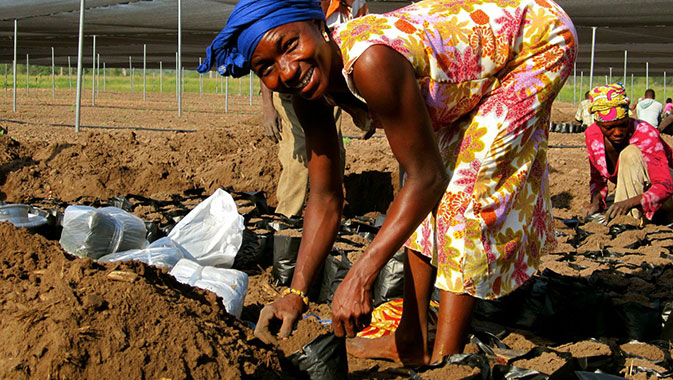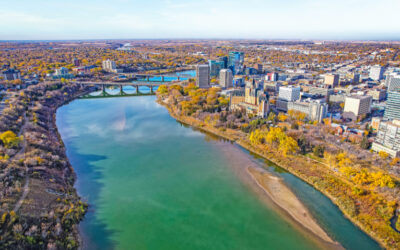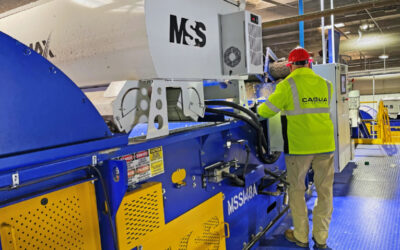In the late 1700s, new technology facilitated the faster production of manufactured goods and introduced patterns of production and consumption that would eventually govern the planet we live in today. For hundreds of years, industries have relied on the raw materials found in the world’s natural habitats. From toilet paper to shirts, many of our most used products come from one of the world’s most valuable resources: forests.
~
Deforestation occurs at a heavy pace – billions of trees that can take a hundred years to grow are chopped every year to make products that may only take sixty seconds for a consumer to discard. EcoPlanet Bamboo Group, the world’s largest commercial bamboo plantation company, offers a certified and sustainable fiber alternative to timber harvesting.
The world’s natural resources represent the building blocks of our planet and form the very foundation that facilitates human life. Since the twentieth century, humanity’s rapid consumption of these resources threatens the health of our environment and jeopardizes the needs of future generations. According to the Global Footprint Network, we have exceeded Earth’s capacity to meet the unprecedented levels of resource demand over the past forty-plus years.
The rapid growth and development of the global economy have brought a new set of challenges for the twenty-first century. The global demand for timber products has led to a magnitude of production that threatens the existence of forests that still exist. From its base in Chicago, Illinois, EcoPlanet Bamboo operates commercial bamboo plantations in Central America, Western Africa, and Southern Africa.
Troy Wiseman, a renowned entrepreneur with a long track record of success, co-founded EcoPlanet Bamboo in 2010 and has served as the company’s CEO since its establishment. Wiseman started his first business at the age of twenty and, within the span of six years, turned it into a $120 million international clothing giant with manufacturing facilities in almost twenty countries.
Since Wiseman’s entrepreneurial journey began, his success has always stemmed from his compassion for people and his mission to change lives within communities in despair. “Entrepreneurship allowed me to fulfill my passion: to help people in need – especially those living in poverty – with an opportunity to create a better future for their families” Wiseman invests in his passion by building unique and profitable businesses that revolve around his commitment to drive change. “I call this conscious capitalism – making money, but doing it in a way that values people,” he says.
The environment was not always Wiseman’s pinnacle of concern. Until six or seven years ago, the savvy businessman had stereotyped environmentalists as ‘tree-huggers’ who did not understand the concept of conscious capitalism. “What I eventually learned was that the desire to save our planet’s forests, shared by many of the people who consider themselves environmentalists, was less about a love for trees and more about an understanding that by saving forests, they were actually saving people,” Wiseman says. “Our values were aligned; we were just going about it in a different way.”
He incorporated sustainability and environmental stewardship as a core principle of conscious capitalism after learning that deforestation directly correlates with poverty and significantly contributes to the adverse effects of climate change, which impacts the livelihoods of the entire population, rich or poor.
The value of forests extends far beyond a source of supply for manufacturers; forests are essential for human life and represent one of the most vital cogs of our habitat. These carbon sinks absorb massive amounts of carbon dioxide from the atmosphere and play a critical role in climate change mitigation. Amongst their many influences, forests regulate water, protect land and water resources, prevent soil erosion and land degradation, and host rich biodiversity. In addition to environmental services, forests provide some of the poorest regions in the world with food, heat, and employment where millions of people depend on the land for subsistence.
Working to stop deforestation, by providing Fortune 500 and other global companies a “tree free and deforestation free” sustainable certified alternative fiber, EcoPlanet Bamboo sets the international bar for sustainable commercial production of bamboo. The company is the only triple certified bamboo company in the world that can provide a sustainable tree-free source of fiber to produce the raw materials for the four chief industries that consume the majority of the world’s timber: textiles, structural supplies, paper, and fuel products.
To make bamboo the ‘timber of the twenty-first century,’ EcoPlanet ensures that its fiber is certified under international standards that industry members and global consumers recognize. Through the Forest Stewardship Council (FSC), its certification guarantees the company’s promise to the responsible development and management of timber supply and enables clients to label their products accordingly. FSC certification ensures that EcoPlanet’s plantations come with a string of environmental, social, and economic benefits. Along with its FSC certification, EcoPlanet’s Central America project also received its Verified Carbon Standard (VCS) verification and a gold level Climate, Community, Biodiversity Alliance (CCBA) certificate.
In addition to the ability to sequester significant quantities of carbon dioxide, bamboo, if managed correctly, can tolerate very poor soil quality, which allows the company to develop commercial bamboo plantations on degraded land in some of the most hopeless regions in Africa and Central America. EcoPlanet Bamboo operates under a model that protects natural forests from further depletion while it simultaneously restores millions of acres of degraded land into fully functional ecological systems. The company doesn’t believe in planting bamboo on land that can grow food, so this approach does not compete with the provision of food security.
EcoPlanet’s bamboo plantations provide the environmental, social, and economic benefits that have disappeared with the continued eradication of our natural forests. Wiseman’s “hand up, not a handout” approach provides people that live in abject poverty with an opportunity to change their fate through long-term jobs.
“When individuals from surrounding communities join our team, as long as they are honest and hardworking, their job is something that they can rely on, not only for them, but for their children,” Wiseman says. “And that security is what allows families to start investing in their own futures through improved standards of living, increased health care, and most significantly, through education.” Typically, forestry involves two years of employment opportunities throughout the tree planting process followed by a twenty-five-year gap until harvesting. EcoPlanet grows tropical clumping bamboo, which reaches maturity within six to seven years of planting and grows in a contained, rather than invasive way. In contrast to tree plantations, in which harvesting kills the plant and restarts the twenty-five-year waiting game, EcoPlanet can harvest its bamboo every year after the plant matures. Furthermore, since only a portion of each plant is harvested each year, the canopy cover and ecosystem benefits that the plantations provide are permanent.
EcoPlanet Bamboo works with its customers to replace their wood-based product with a sustainable duplicate through innovative technology, clean manufacturing processes, and extensive research and development. From quality to price, EcoPlanet matches each customer’s unique product specification, which starts with figuring out which of the 1,200 bamboo species have the right product characteristics, and at what age does that species provide the best quality for a particular product, before it moves forward with planting. “Bamboo is no different from trees. Species matter, if you want the best end product; there is a reason people use teak for their boat decks, rather than pine. Just because 85 percent of all bamboo products are made from one species of bamboo grown in China, does not mean it is the best choice; it only means that what they had sell. We did it the opposite way. We started with the product and figured out which bamboo species was best for that product. After many years of R&D and millions of dollars spent, today EcoPlanet knows which bamboo species makes the best clothing, packaging, outdoor decking, and biofuel.”
“Our model was designed so that industry can continue to supply quality products and consumers can continue to increase their quality of life – but both can do so in a way that doesn’t destroy our planet,” Wiseman says. “It is mathematically impossible for our remaining natural forests to fulfill the unprecedented demands of our world’s exploding population.”
EcoPlanet Bamboo’s recent expansion into western Africa applies six years of integrated knowledge and developed frameworks to its plantation operations currently underway in Ghana. “We are excited to continue to expand these operations, through an ongoing public-private partnership with the government of Ghana through the Forestry Commission,” Wiseman says. In coming months, EcoPlanet will announce a new partnership in which the company will work with government to develop a nationwide framework for bamboo industrialization.
With the world’s population projected to be over nine billion people by 2050, more companies need to adopt strategies that address some of the most pressing environmental concerns of our time. According to research conducted by the World Resources Institute (WRI), 50% of global forest landscapes have been either cleared or degraded. As the first mover in this space of sustainably certified commercial scale bamboo plantations, EcoPlanet Bamboo pioneers the industrialization of bamboo as a certified and sustainable alternative fiber that industries and manufacturing companies can use in all of their wood and fiber based products.
Wiseman is fully committed to the fruition of a better tomorrow and intertwines his “head and heart” to maintain EcoPlanet’s ‘conscious capitalism’ culture. As a catalyst for change, the company is helping its customers, securing the very environmentally conscious and responsibly minded next generation of consumers, energizing livelihoods in impoverished communities, and reversing the devastating effects of climate change.
“Capitalism to me is head-driven and can easily lead to greed. Charity is heart-driven and can easily lead to dependence, no accountability, and corruption. However, ‘conscious capitalism’ is about having the right balance between ‘head and heart’. Ironically that is what capitalism used to represent. Your employees were your family, your customers were your friends, being open, honest, and transparent allowed for win-win solutions to be figured out. Capitalism is really the only sustainable way to fix major global issues. However, we need to get back to the basics where all people are treated with respect,” he says. “They are not hired based on gender, economic status, or political or religious affiliation, but based on character and work ethic. We need to get back to building business the right way and for the right reasons, and that can never happen without the right balance of head and heart.”













